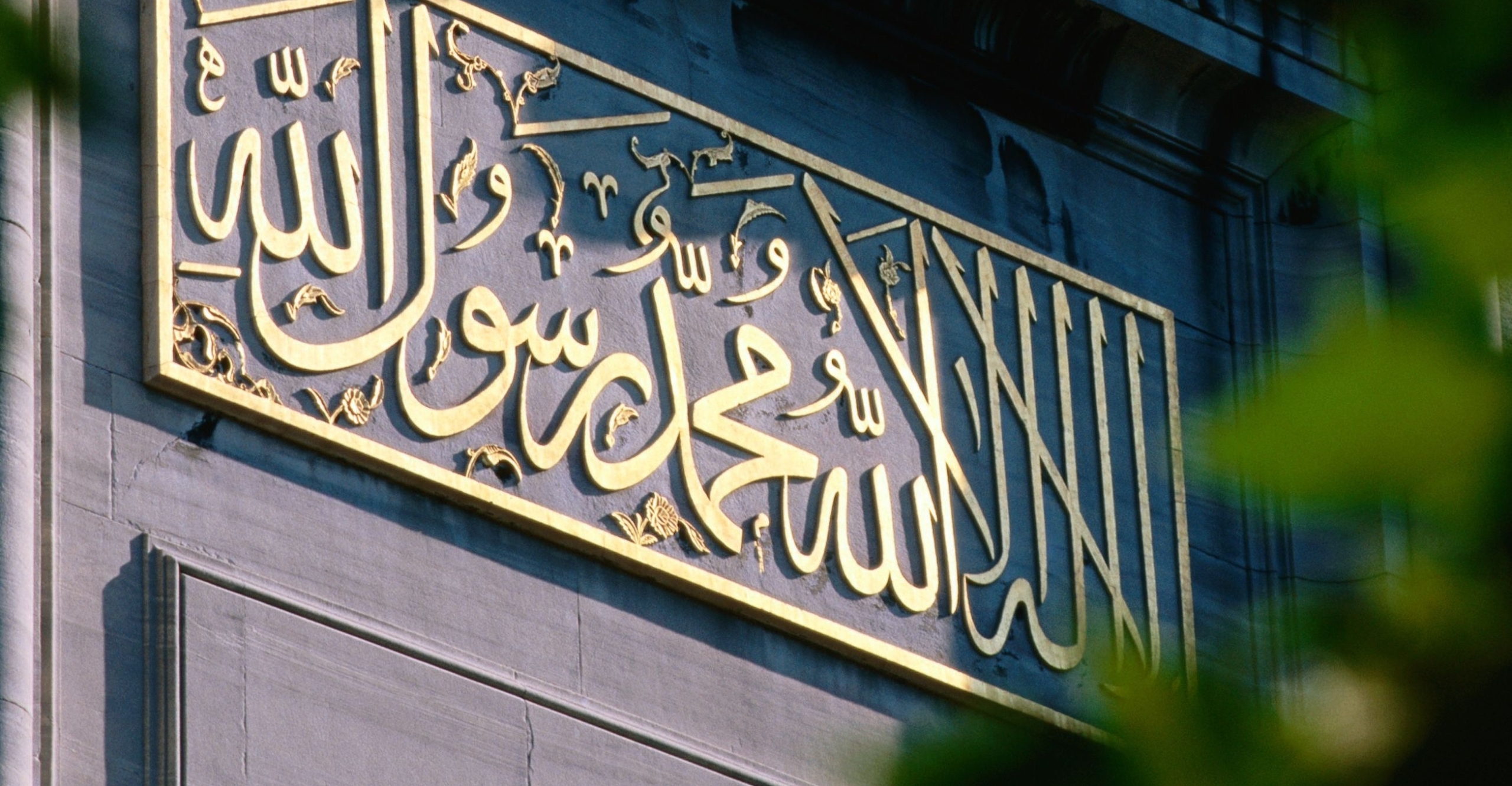Is the Complete Testification of Faith Anywhere in the Quran and Hadith?
Answered by Shaykh Irshaad Sedick
Question
I have a question regarding the Authenticity of the Testification of Faith. People follow a concocted statement, but there is no Authentic hadith behind it that mentions the complete statement ( La ilaha illa Allah Muhammad Rasulullah–There is no god but God and Muhammad is the Messenger of God). These are two separate phrases. This is not in a sequenced order, so how can we follow it? So it’s your duty to open the truth. Otherwise, Allah will ask you about it.
Answer
In the Name of Allah, the Most Merciful and Compassionate. May Allah guide every dimension of our lives to that which pleases Him.
The tone, false claims, and bad etiquette in your question are ugly, dangerous to your faith, and unbecoming of any believer–it also speaks of a possible sinister motive behind your question/claim. May Allah forgive you and all of us. I urge you to repent and refrain from such indulgences lest they endanger your faith. Words are held sacred in Islam, and bad words have far-reaching consequences, so believers should always take care to guard their tongues. Calling the testification of faith “a concocted statement” is dangerous and could potentially remove one from the fold of Islam. Allah forbid.
The entire corpus of Islam is founded upon the testification of faith in all its forms. The “complete testification” appears in several oft-repeated and well-known ahadith. Your lack of knowledge on a particular point does not negate the sound knowledge of more than fourteen hundred years of scholarship, and Allah knows best.
The Testification of Faith in the Quran
Many critical components of Islam are not found verbatim and in sequence in the Quran, but that does not invalidate those components. Appearing verbatim and in the exact sequence was never a condition for the validity of Islam’s teachings. The Quran does not explicitly state “there are five daily prayers,” yet they are essential for practising Islam. Sacred Law comprises evidence from the Quran, Sunna, Ijma‘ (scholarly consensus), and Qiyas (analogy), among other sources.
The components of the testification of faith exist in a plethora of verses in the Quran: 2:255, 47:19, 6:102, 48:29, and 3:144.
The Testification of Faith in Hadith
The “complete” testification of faith does appear verbatim and in sequence in several ahadith, every one of which disproves the false claim that it is a “concocted statement”:
On the authority of ‘Abdullah Ibn Umar Ibn Al-Khattab (may Allah be pleased with him) who said: I heard the Messenger of Allah (Allah bless him and give him peace) say: Islam has been built on five [pillars]: testifying that there is no god but Allah and that Muhammad is the Messenger of Allah, performing the prayers, paying the Zakah, making the pilgrimage to the House, and fasting in Ramadan. [Agreed Upon-Bukhari & Muslim]
Umar ibn al-Khattab (Allah be pleased with him) reported: We were sitting with the Messenger of Allah, peace and blessings be upon him, one day when a man appeared with snow-white clothes and pitch-black hair. There were no signs of travel on him, and we did not recognise him. He sat down in front of the Prophet, rested his knees by his knees, and placed his hands on his thighs.
The man said, “O Muhammad, tell me about Islam.” The Prophet said, “Islam is to testify there is no God but Allah and Muhammad is the Messenger of Allah, establish prayer, give charity, fast the month of Ramadan, and perform pilgrimage to the House if a way is possible.” The man said, “You have spoken truthfully.” We were surprised that he asked him, and he said he was truthful.
He said, “Tell me about faith.” The Prophet said, “Faith is to believe in Allah, His angels, His Books, His Messengers, the Last Day, and to believe in providence, its good and its evil.” The man said, “You have spoken truthfully.
Tell me about excellence.” The Prophet said, “Excellence is to worship Allah as if you see Him, for if you do not see Him, He surely sees you.”
The man said, “Tell me about the final hour.” The Prophet said, “The one asked does not know more than the one asking.”
The man said, “Tell me about its signs.” The Prophet said, “The slave-girl will give birth to her mistress, and you will see barefoot, naked, and dependent shepherds compete in the construction of tall buildings.”
Then, the man returned, and I remained. The Prophet said to me, “O Umar, do you know who he was?” I said, “Allah and his messenger know best.” The Prophet said, “Verily, he was Gabriel who came to teach you your religion.” [Muslim]
I pray this is of benefit and that Allah guides us all.
[Shaykh] Irshaad Sedick
Checked and Approved by Shaykh Faraz Rabbani
Shaykh Irshaad Sedick was raised in South Africa in a traditional Muslim family. He graduated from Dar al-Ulum al-Arabiyyah al-Islamiyyah in Strand, Western Cape, under the guidance of the late world-renowned scholar, Shaykh Taha Karaan.
Shaykh Irshaad received Ijaza from many luminaries of the Islamic world, including Shaykh Taha Karaan, Mawlana Yusuf Karaan, and Mawlana Abdul Hafeez Makki, among others.
He is the author of the text “The Musnad of Ahmad ibn Hanbal: A Hujjah or not?” He has served as the Director of the Discover Islam Centre and Al Jeem Foundation. For the last five years till present, he has served as the Khatib of Masjid Ar-Rashideen, Mowbray, Cape Town.
Shaykh Irshaad has thirteen years of teaching experience at some of the leading Islamic institutes in Cape Town). He is currently building an Islamic online learning and media platform called ‘Isnad Academy’ and pursuing his Master’s degree in the study of Islam at the University of Johannesburg. He has a keen interest in healthy living and fitness.
